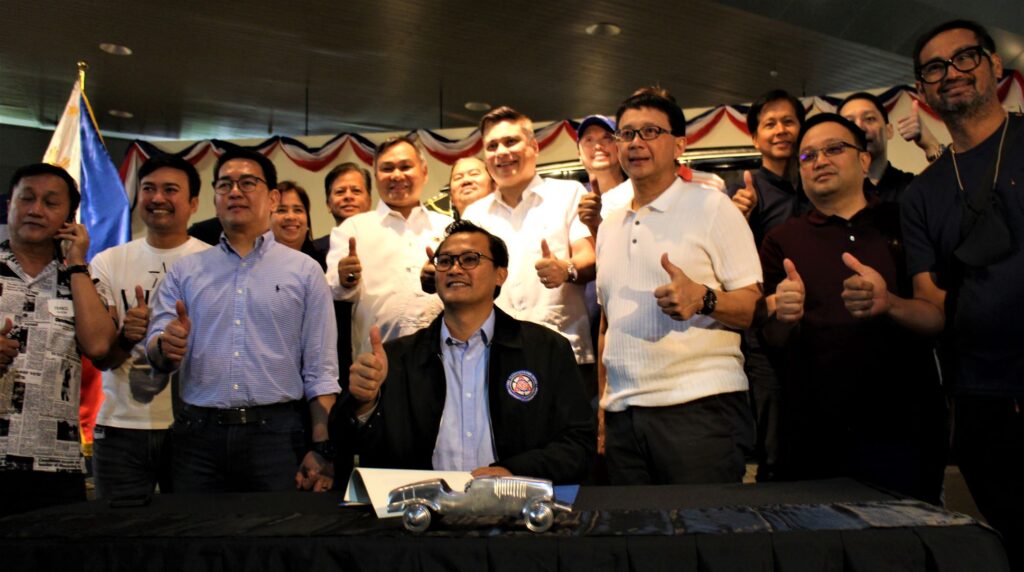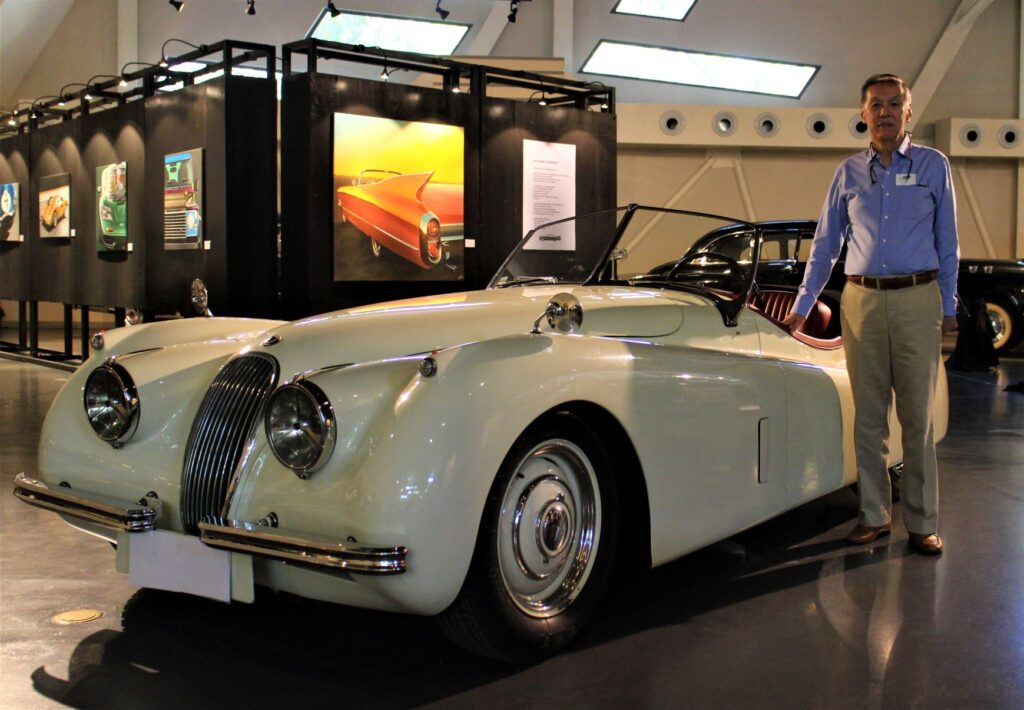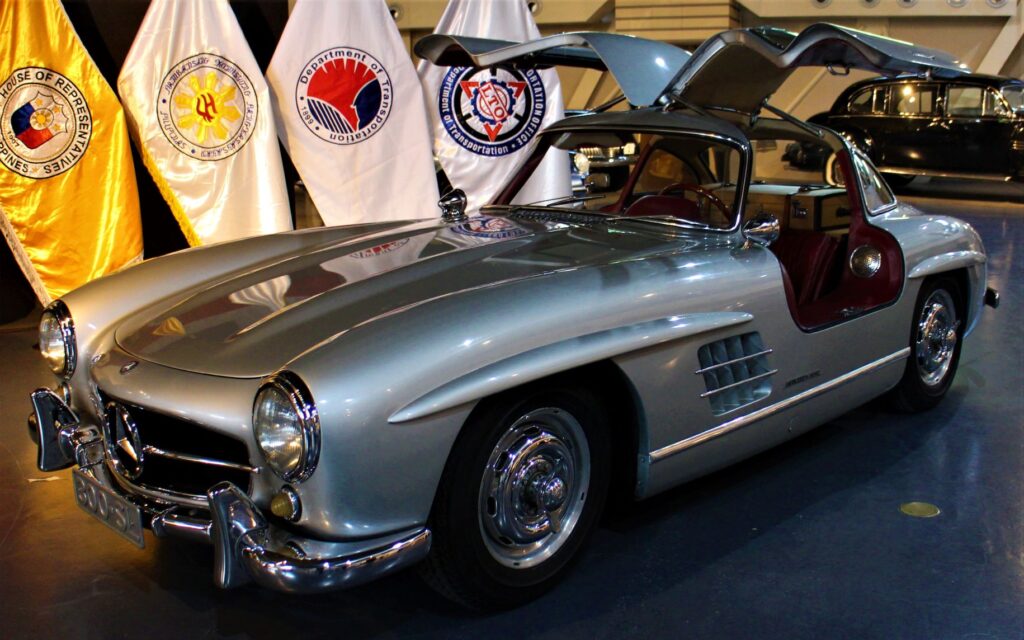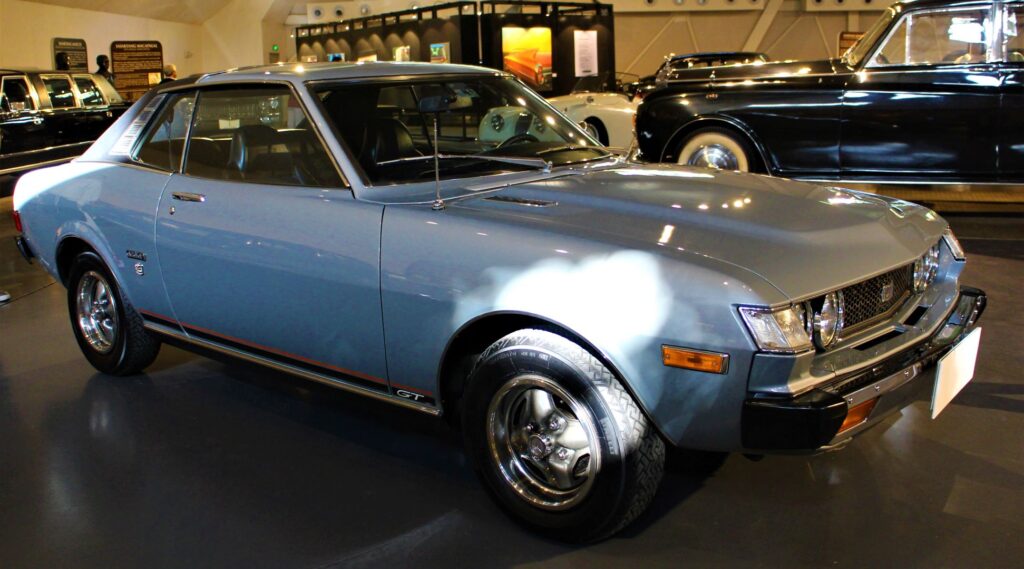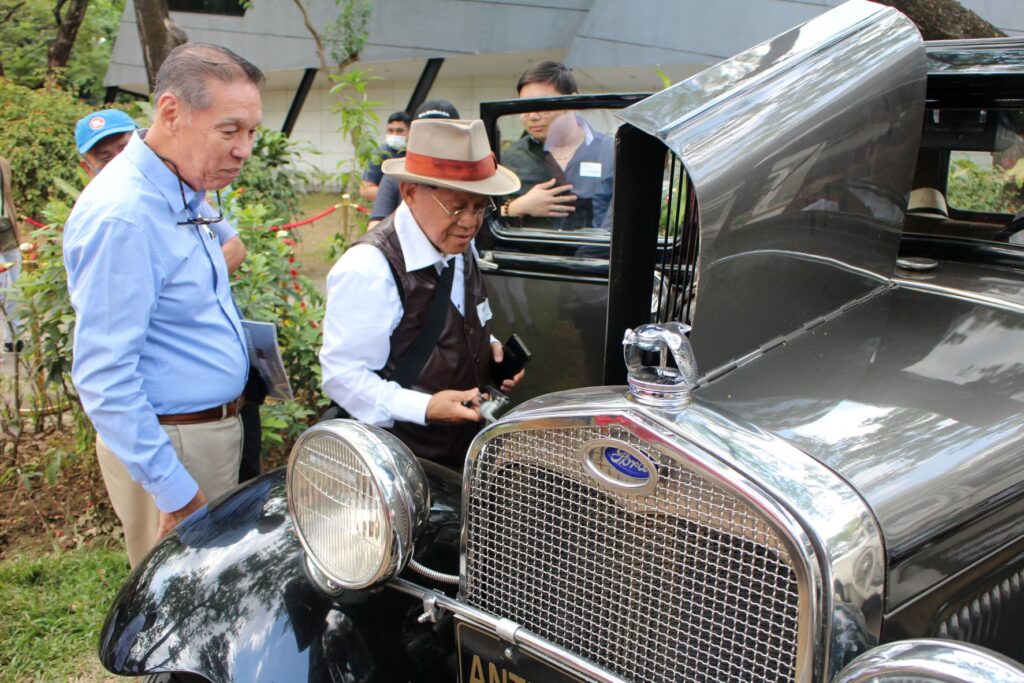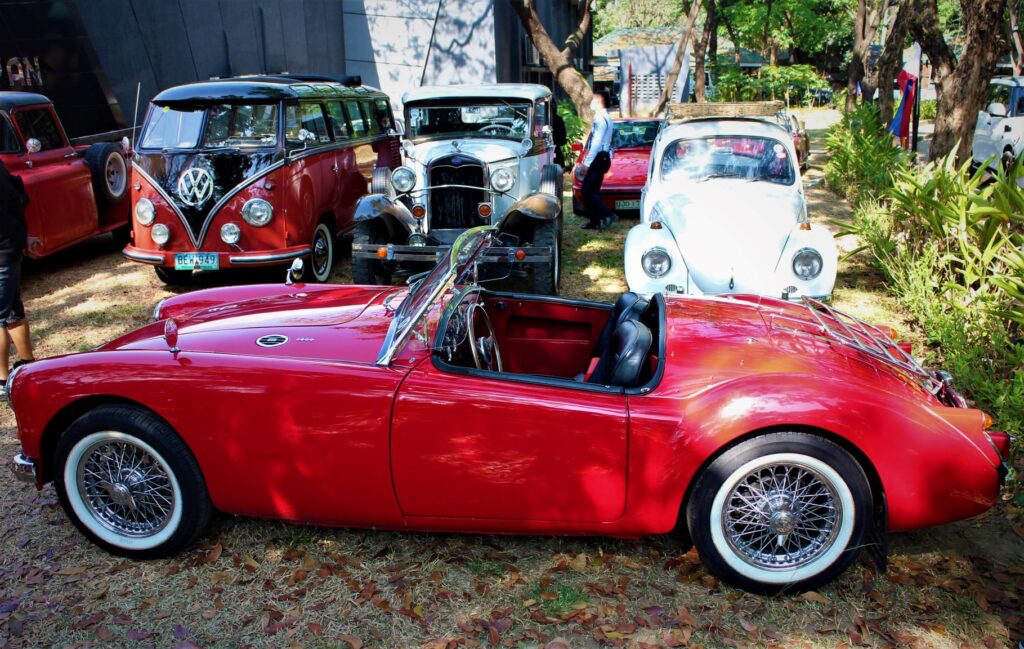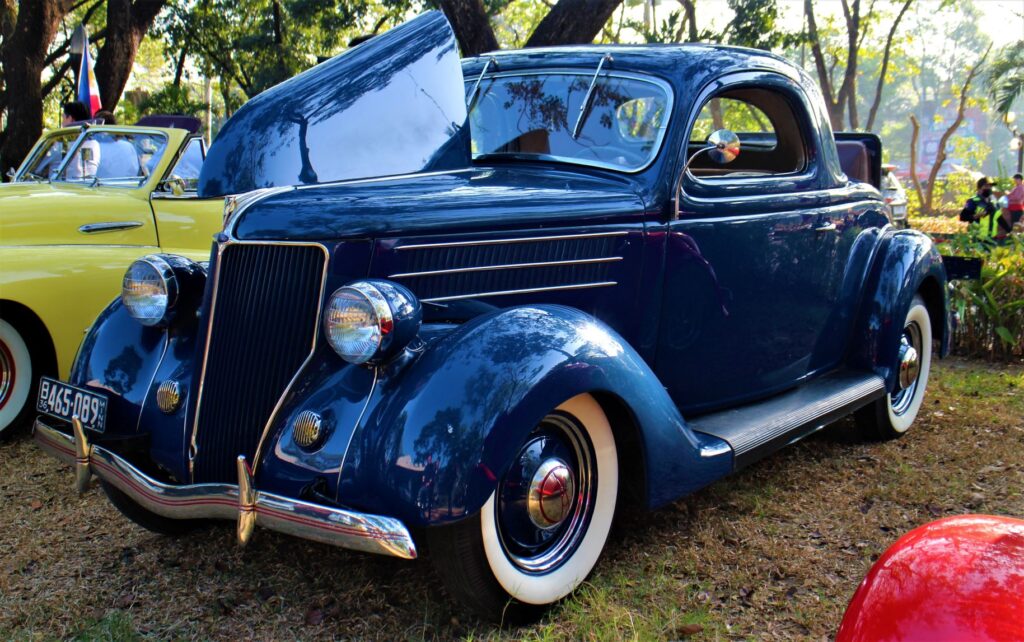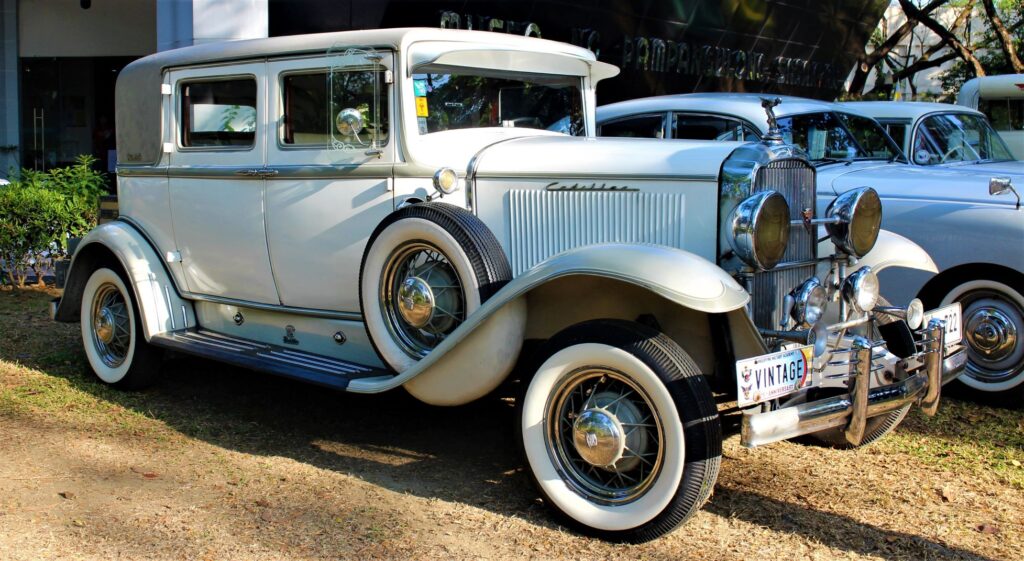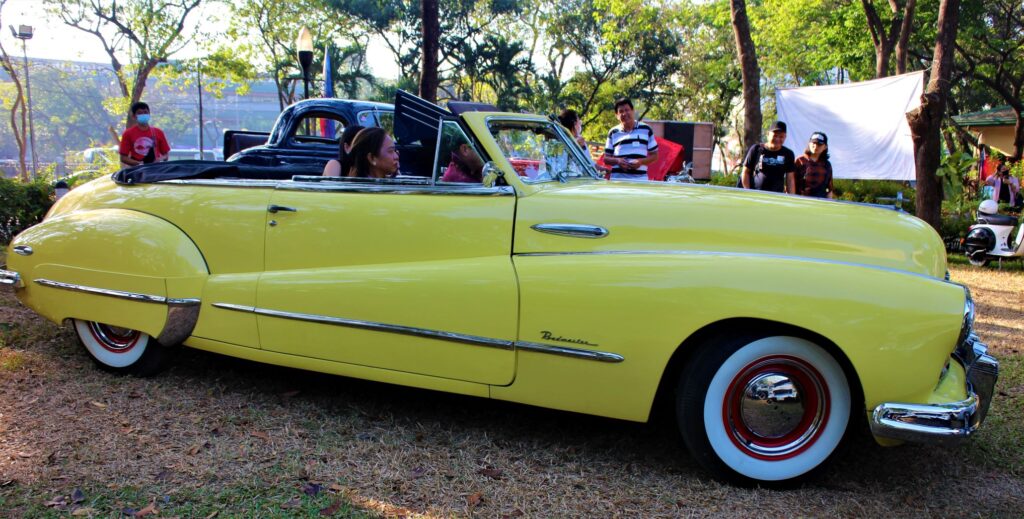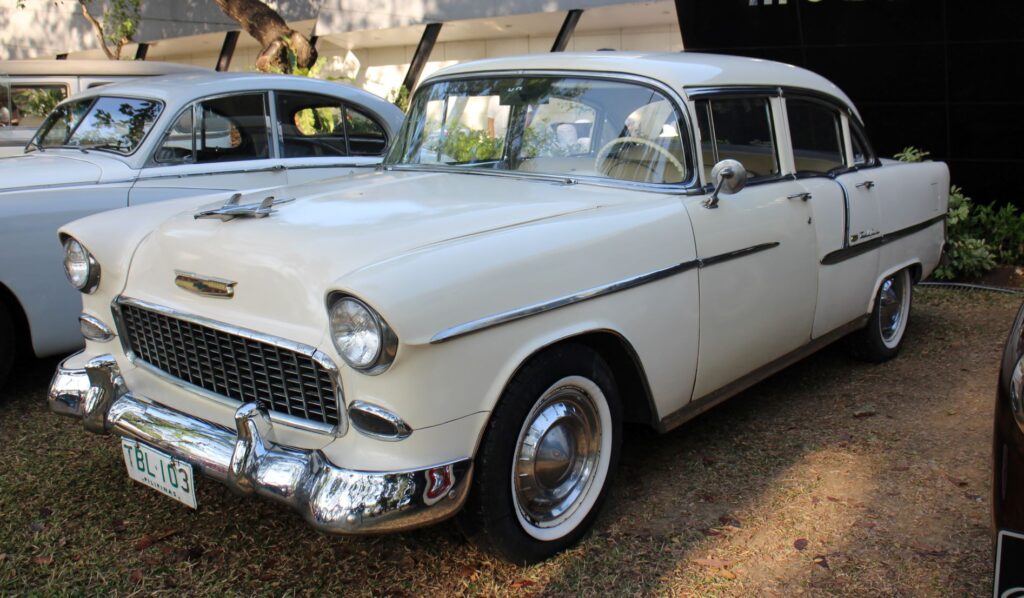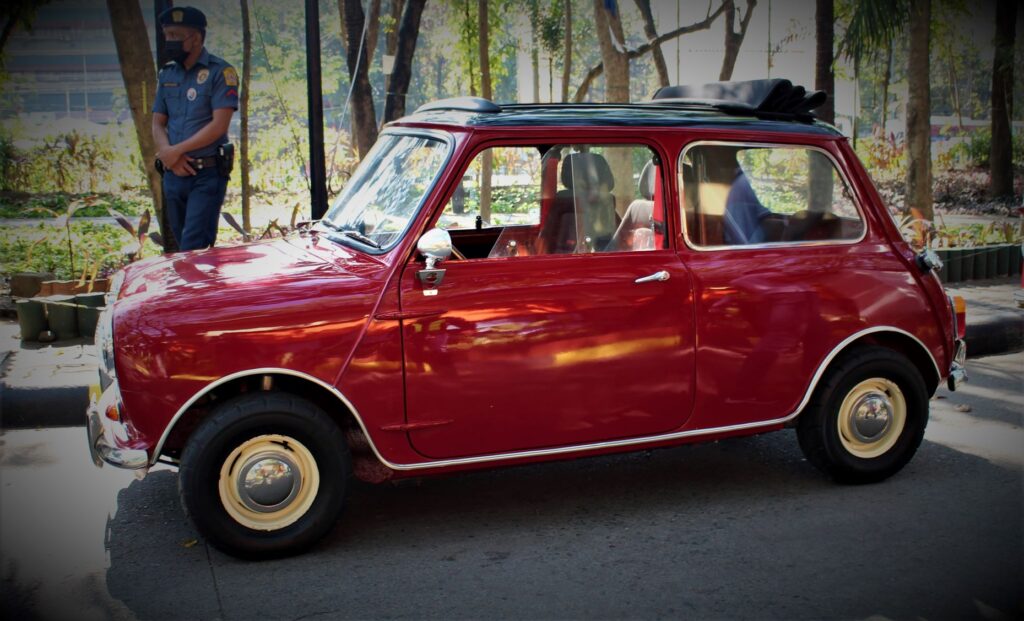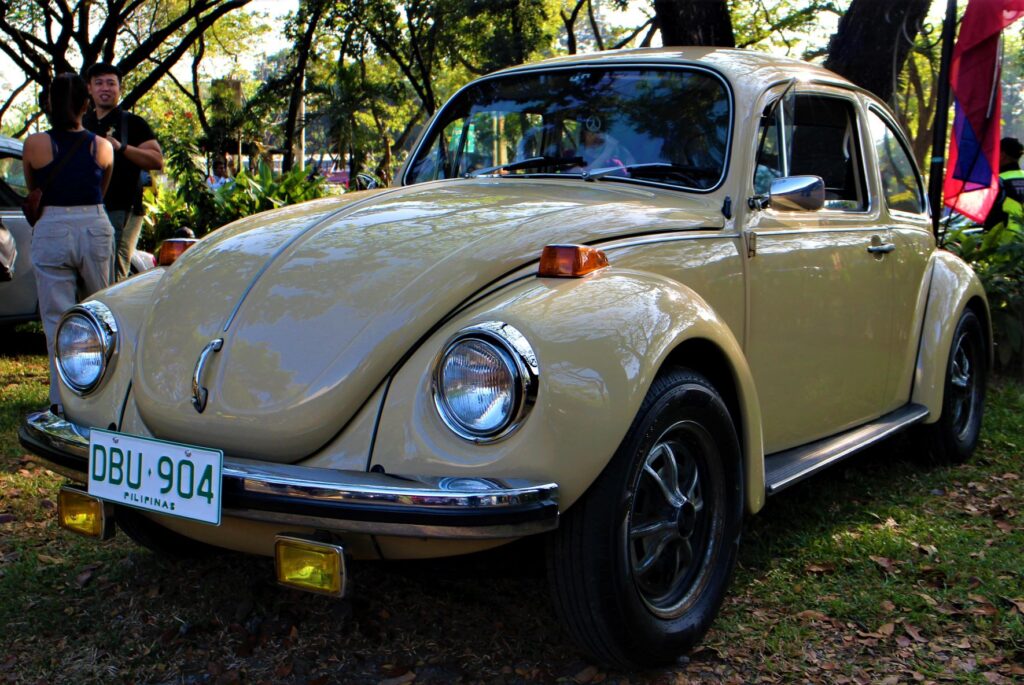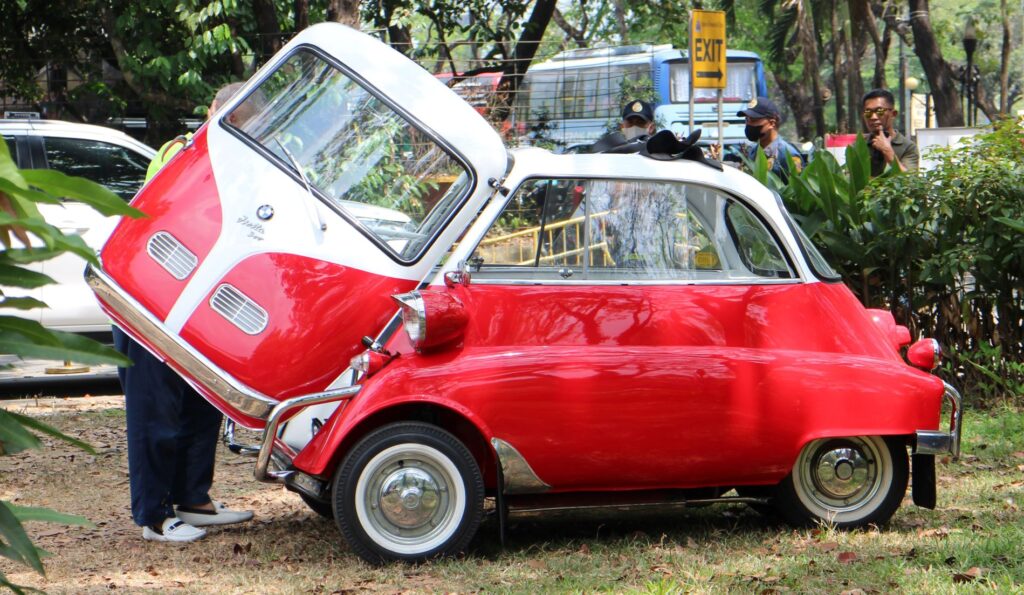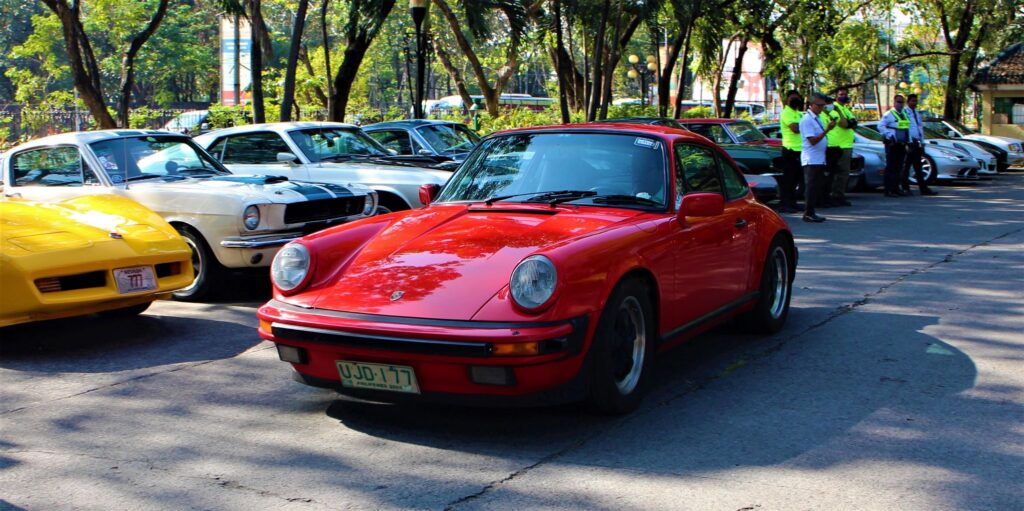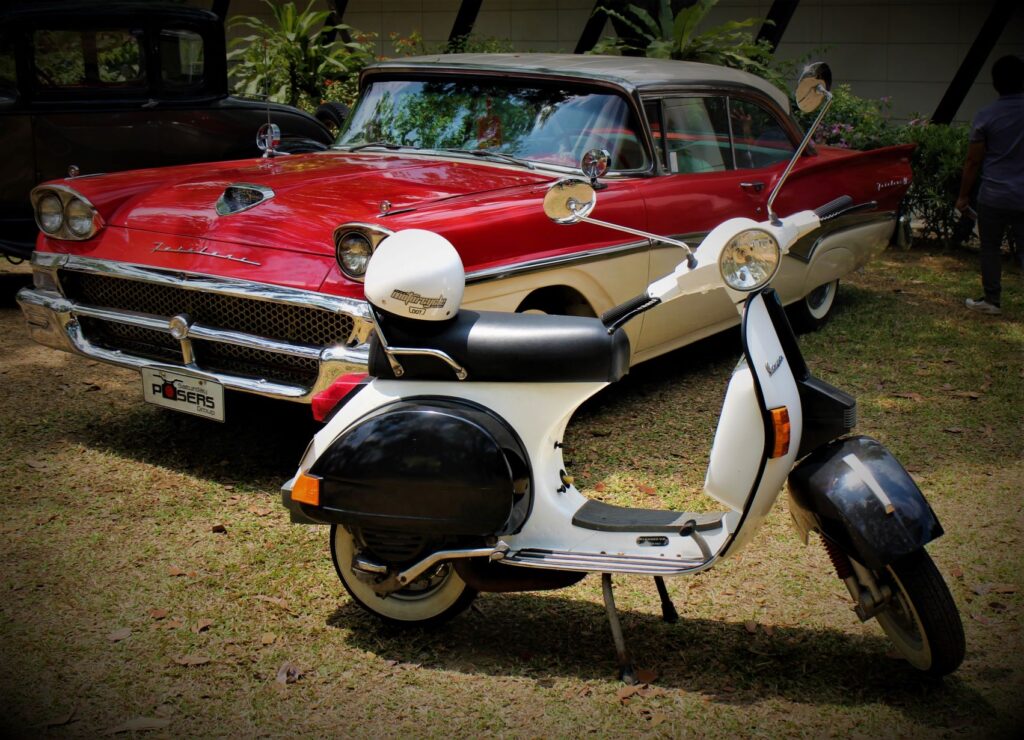On March 12, 2023, the Presidential Limousine Museum inside the Quezon Memorial Circle along the Elliptical Road in Quezon City once again became a historical venue when various vintage, classic and exotic car owners and enthusiasts gathered to witness the signing ceremonies of the Implementing Rules and Regulations (IRR) of Republic Act 11698, otherwise known as the Vintage Vehicle Regulation Act.
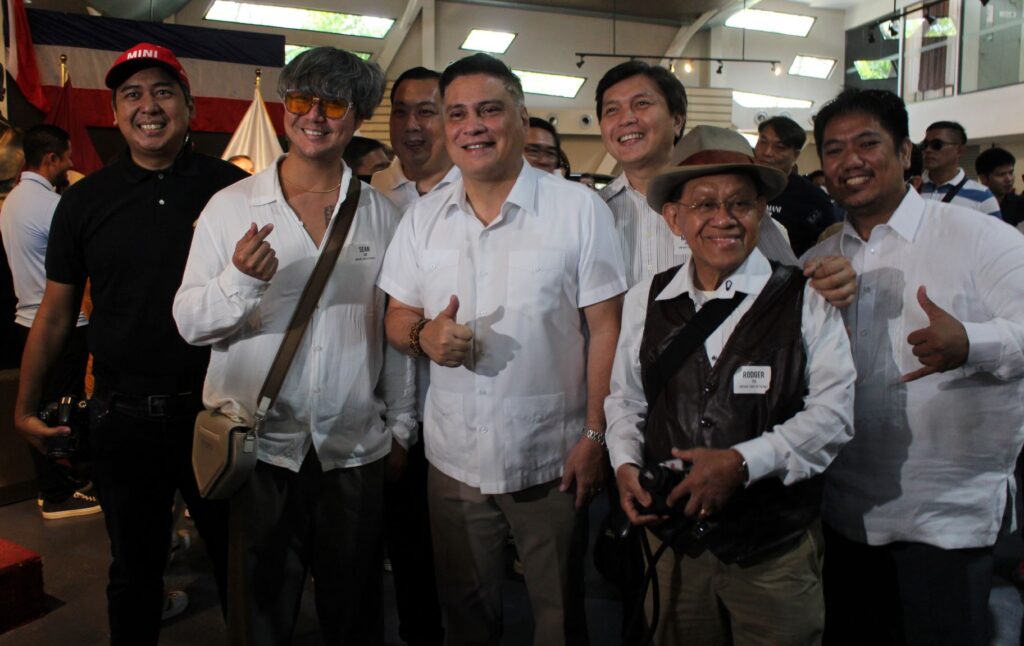
Vintage Car Philippines (VCP) president Sean Lim, LBS Chariman Rodger Yu and other VCP members gather around Senate President Juan Miguel Zubiri.
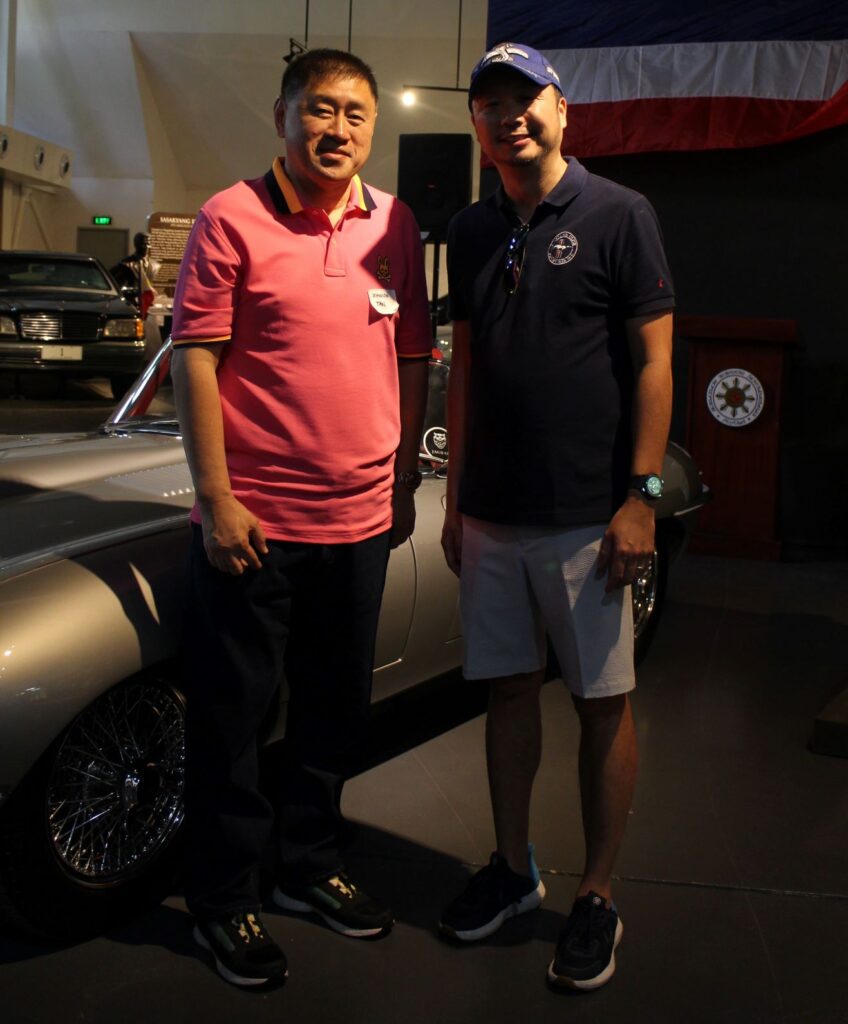
Johnson Tan of JSK Custom Paint and Auto Works and former Congressman and now Valenzuela City Mayor Wes Gatchalian pose beside a beautifully restored Jaguar E-Type.
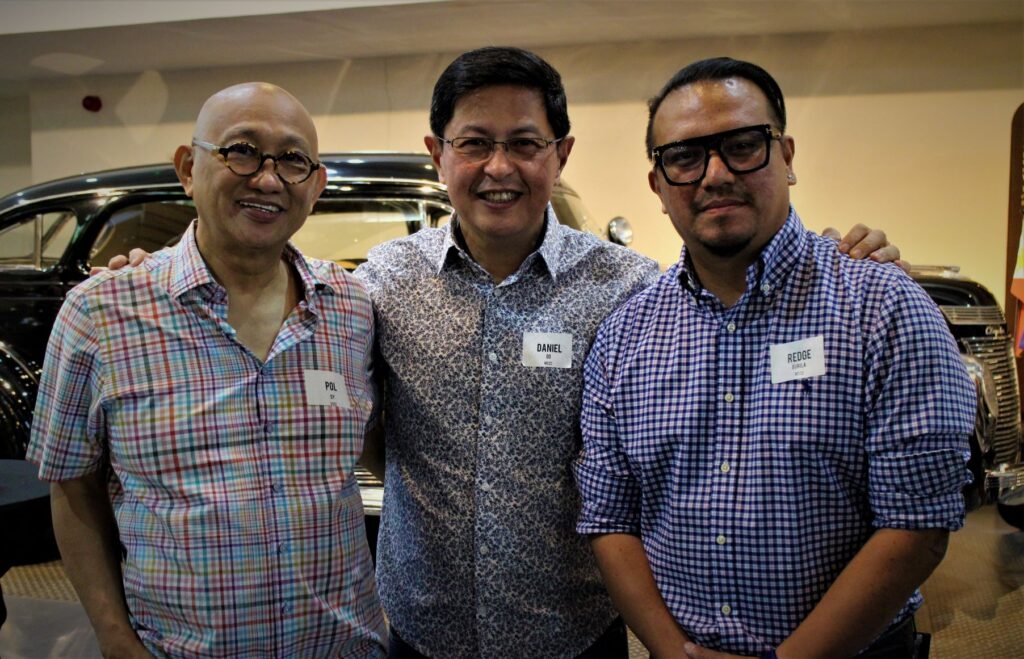
The IRR Signing Ceremony became a reunion of like-minded friends like sports car owners Pol Dy, Arch. Daniel Go and Reggie Burilla.
Senators and Congressmen who authored the bill and several government officials along with hundreds of owners and enthusiasts of vintage vehicles, as well as members of the media witnessed Land Transportation Office (LTO) chief Jose Arturo Tugade signing the 26-page IRR, which signals the start of the new and different legal process to register qualified vintage vehicles.
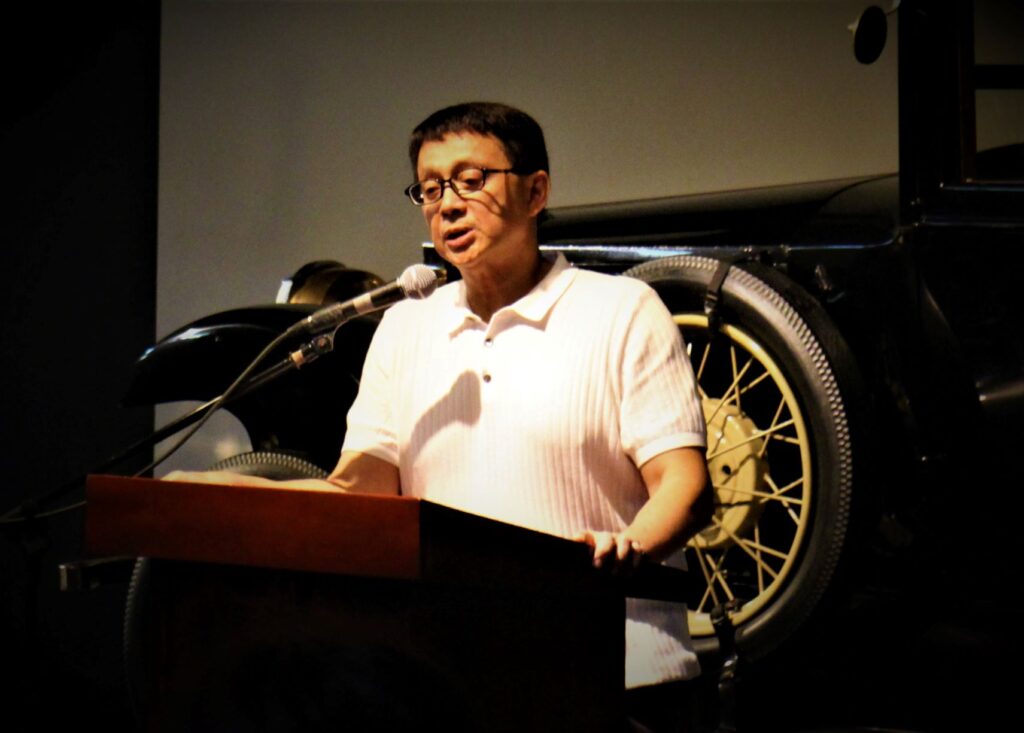
Senior Deputy Minority Leader Congressman Paul Daza, who’s a car enthusiast, co-authored the bill on the regulation of vintage vehicles.
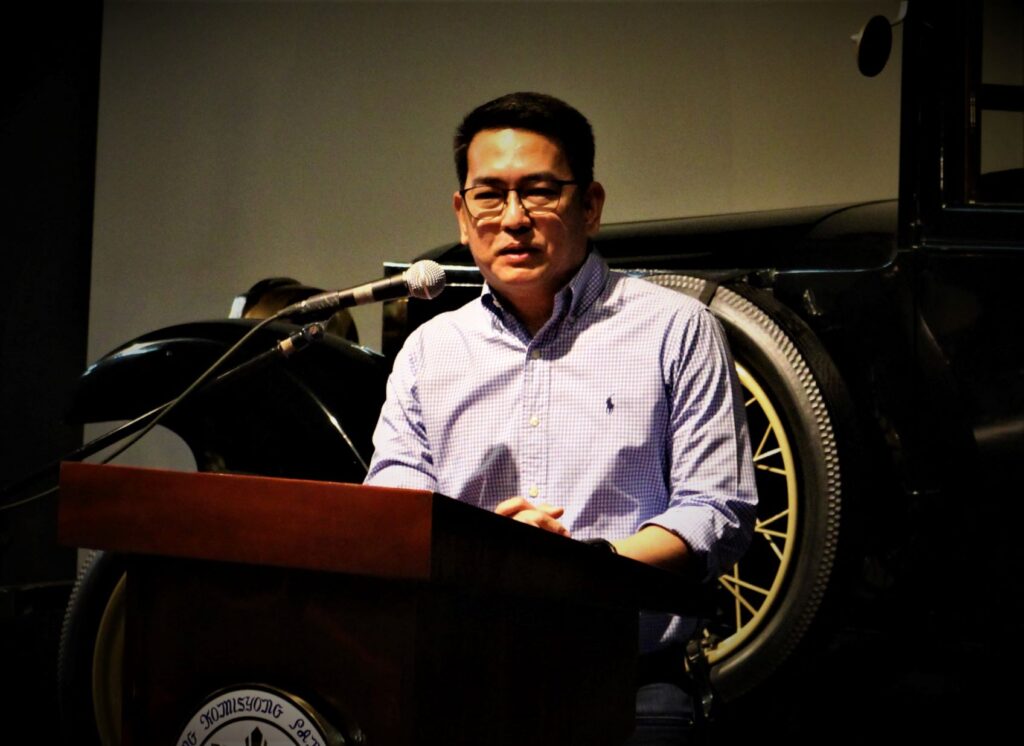
Deputy Director for TESDA Operations Aniceto “John” Bertiz III hopes that with the new law, the Philippines will be the car restoration hub in Asia and will provide new skills and employment opportunities.
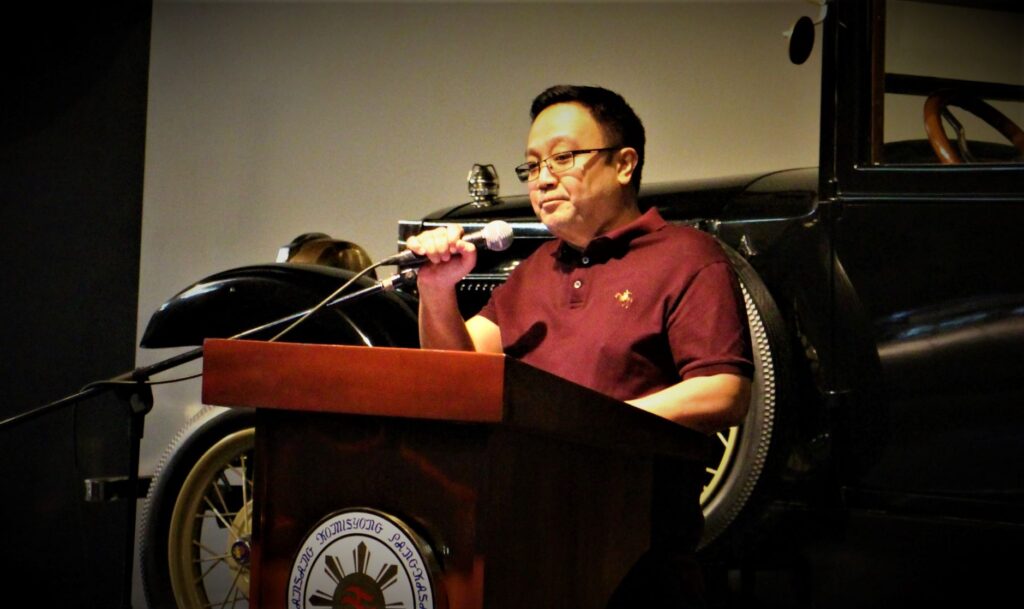
Bureau of Customs Deputy Commissioner Atty. Vener Baquiran said that the BOC is working on a system in compliance with the new law so that importation of vintage vehicles 40 years old and older will not be as difficult as before.
The Vintage Car Law, as it is commonly known, was enacted in April 2022. It covers vehicles that are 40 years or over from the date of manufacture and aims to protect and promote the country’s heritage by establishing regulatory policies that encourage the preservation, maintenance, occasional use and registration of these vintage vehicles.
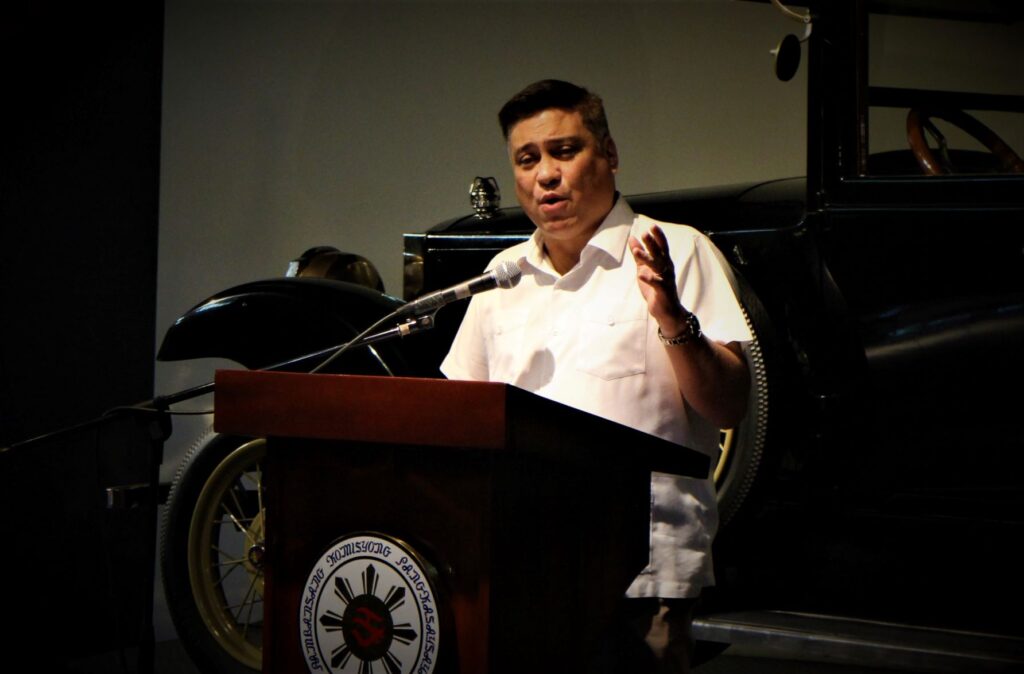
Senate President Juan Miguel “Migz” Zubiri spoke from the heart to share his experience as a former owner of a ’60s Mustang convertible and as a current owner of a vintage Porsche 356.
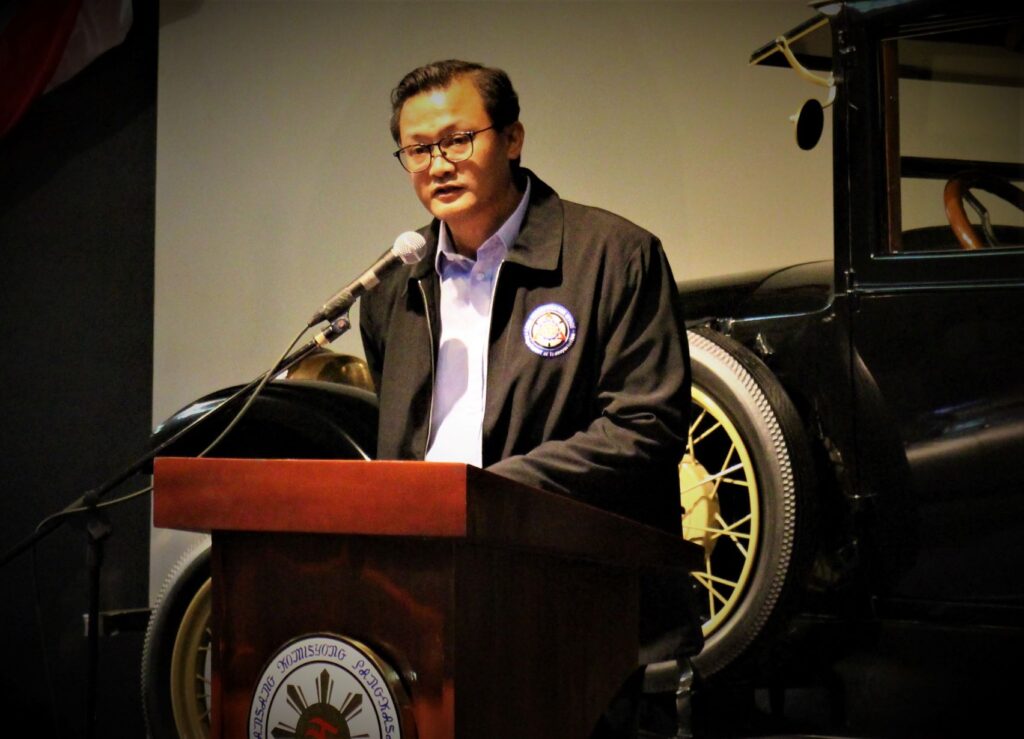
LTO Chief Assistant Secretary Jose Arturo “JayArt” Tugade spoke about the requirements to register vintage vehicles and the need for a recognized automotive authority to authenticate these.

National Historical Commission of the Philippines (NHCP) Chairman Dr. Emmanuel Calairo enjoined vintage car owners to have their club meets at the Presidential Limousine Museum.
Under the IRR, vintage vehicles are not required to meet environmental, safety, road use and other standards that were not in force at the time of their manufacture, either as conditions for their registration or use on public roads. However, the vintage vehicle must be deemed safe and roadworthy to be driven on public roads.
Section 3 of the IRR states that, “As a general rule, a vintage vehicle applying for registration or renewal of its registration under Rule VI hereof shall be subject to inspection to determine whether it is unsightly, unsafe, improperly equipped, otherwise unfit to be operated in public highways based on the standards that were in force at the time of its manufacture, and to ensure its conformity on period specification and permitted modifications.”
The IRR now allows the importation, registration and use of right-hand drive vintage vehicles manufactured on or before Dec. 31, 1970. However, Section 1 of Republic Act 8506 still applies to right-hand drive vehicles that were made from January 1, 1971 onwards.
The new law prohibits the use of a registered vintage vehicle for commercial purposes, such as being used as a public utility vehicle (PUV), or for the commercial transport of persons or goods, including as a vehicle accredited with and operating through transport network corporations such as Grab and other ride-sharing operations. The law allows vintage vehicles to be used in motion pictures, advertisements, pictorials, weddings and motorcades.
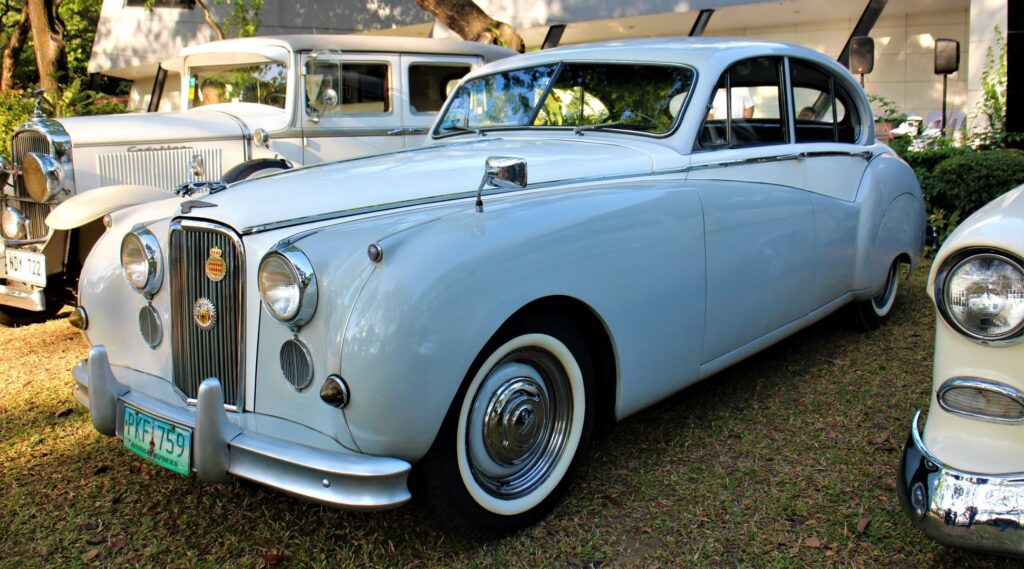
Look again – it’s not a Rolls-Royce or a Bentley – it’s a Jaguar Mark VII that was made from 1951 to 1956
Restoration shops and companies that are accredited by the Department of Trade and Industry (DTI) as “service and repair enterprises” should be eligible to avail themselves of fiscal and tax incentives. The LTO is mandated to establish and maintain a national database that lists and describes vintage vehicles in the country. The LTO is also mandated to support the local restoration industry by including in its database authorized and licensed shops engaged in the repair of vintage vehicles or in the manufacture of spare and replacement parts for vintage vehicles, private sector association and interest groups.
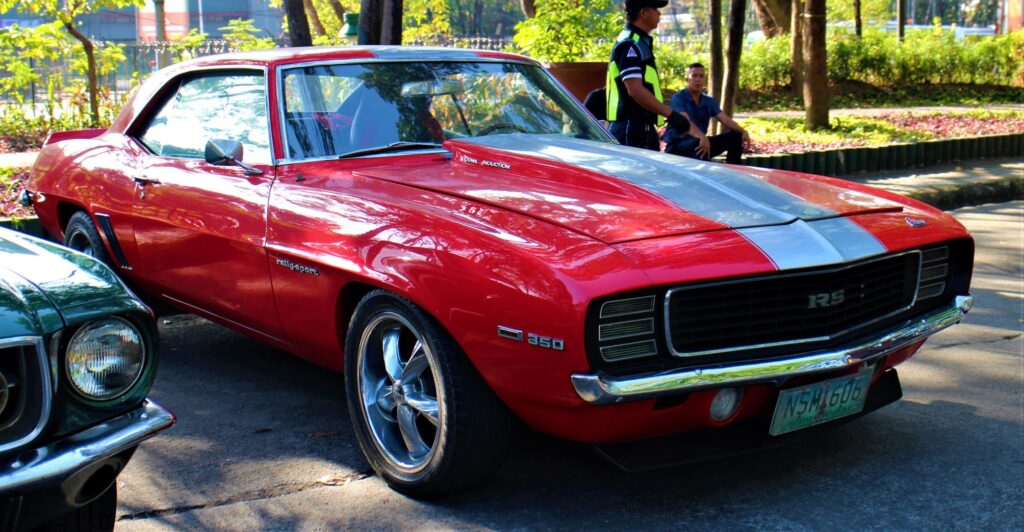
Yutivo Corporation locally assembled the 1969 Chevy Camaro RS similar to this highly-modified example.
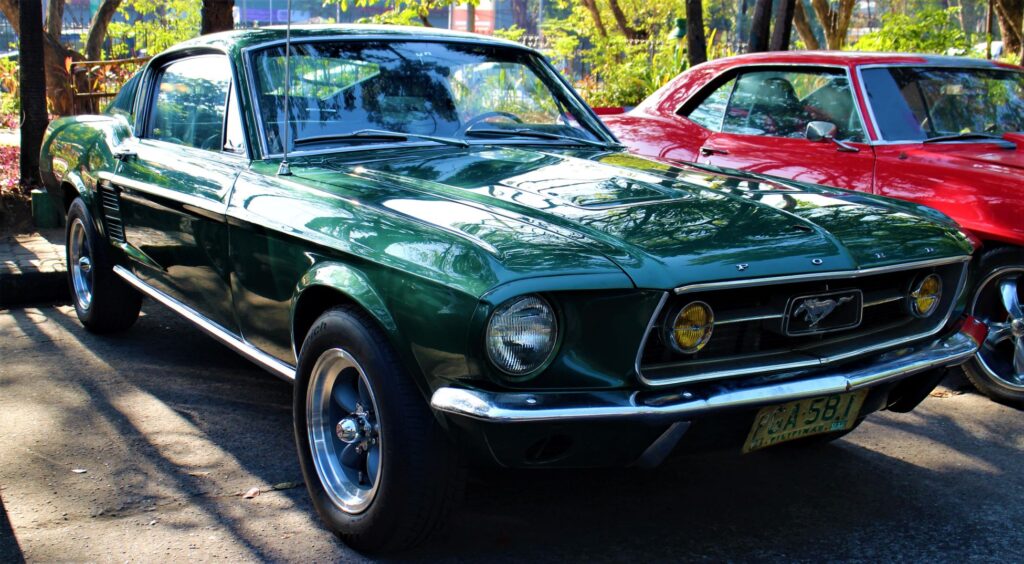
Highland green 1967-68 Ford Mustang Fastback with Torque Thrust wheels is reminiscent of the 390 GT that Steve McQueen drove in “Bullitt”.
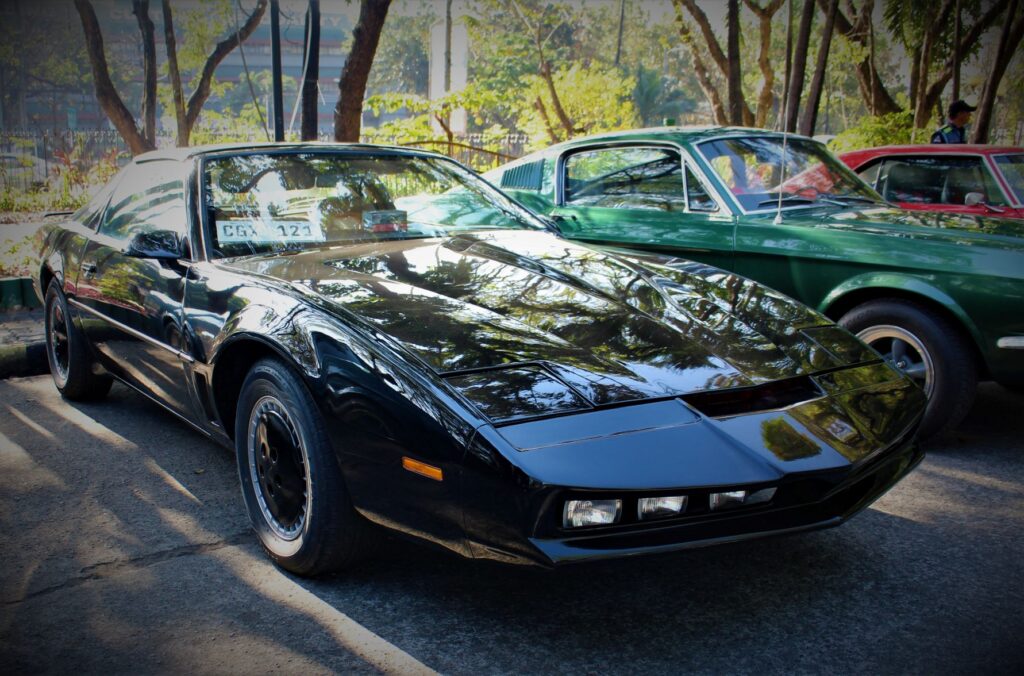
Hard to believe that the Knight Industries Thousand or KITT, the talking 1982 Pontiac Firebird Trans Am, is here in the Philippines and is now more than 40 years old!
Meanwhile, the vintage, classic and exotic vehicles parked on the grounds around the Presidential Limousine Museum inadvertently created an impromptu car show in Quezon City.
 Power Wheels Magazine A Notch Above
Power Wheels Magazine A Notch Above

